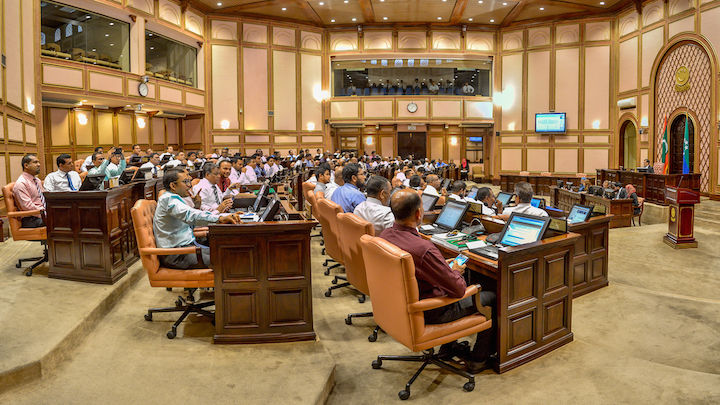Terrorism bill could suppress political activity, warn opposition MPs
The draft legislation states that inciting violence at demonstrations and threatening the country’s independence and sovereignty will be considered acts of terrorism and specifies penalties of up to 25 years in jail.

03 Aug 2015, 09:00
A new anti-terrorism law proposed by the government could be used to suppress political activities and jail politicians, opposition MPs have warned.
The draft legislation states that inciting violence at demonstrations and threatening the country’s independence and sovereignty will be considered acts of terrorism and specifies penalties of up to 25 years in jail.
During the preliminary debate on the bill at today’s sitting of parliament, several MPs noted that the existing anti-terrorism law has been used to jail or prosecute opposition leaders, and said politicians could become victims of the new law if the government exerts political influence over the judiciary and law enforcement bodies.
Former President Mohamed Nasheed was found guilty of terrorism over the military’s detention of a judge during his tenure and sentenced to 13 years in prison in March, whilst Adhaalath Party president Sheikh Imran Abdulla, Jumhooree Party (JP) deputy leader Ameen Ibrahim, and JP council member Sobah Rasheed were charged with terrorism in late May.
Become a member
Get full access to our archive and personalise your experience.
Already a member?
Discussion
No comments yet. Be the first to share your thoughts!
No comments yet. Be the first to join the conversation!
Join the Conversation
Sign in to share your thoughts under an alias and take part in the discussion. Independent journalism thrives on open, respectful debate — your voice matters.




